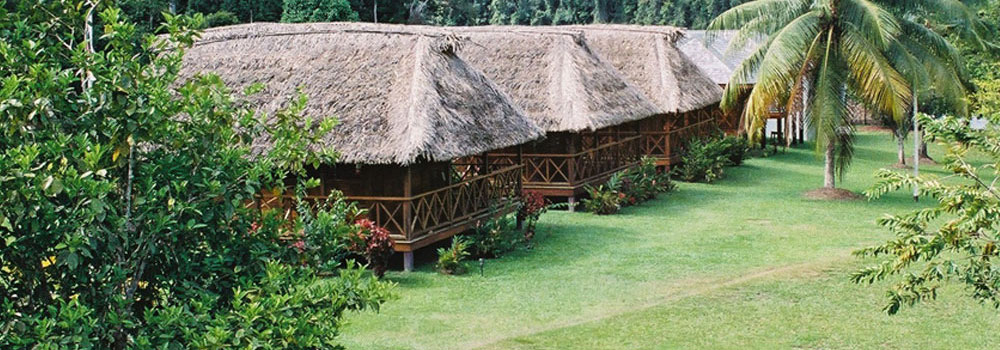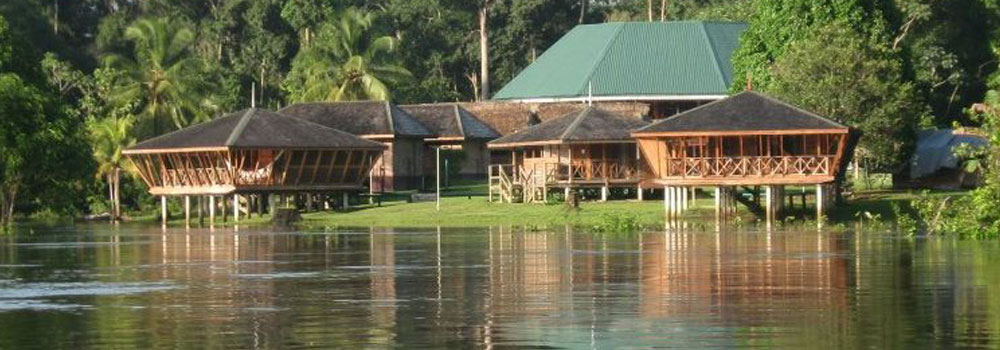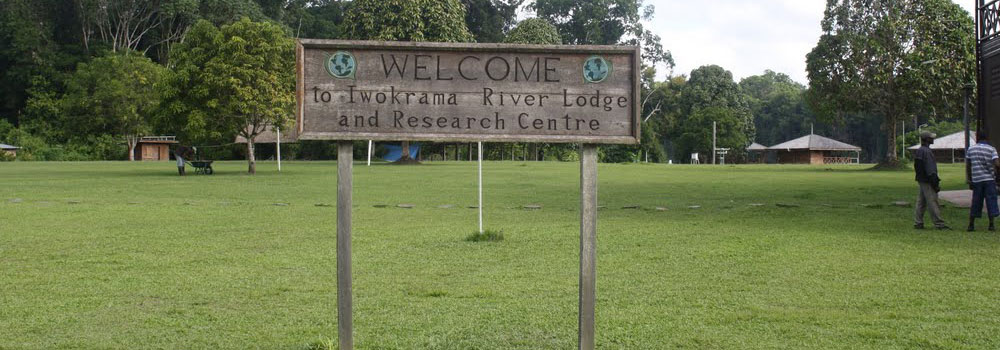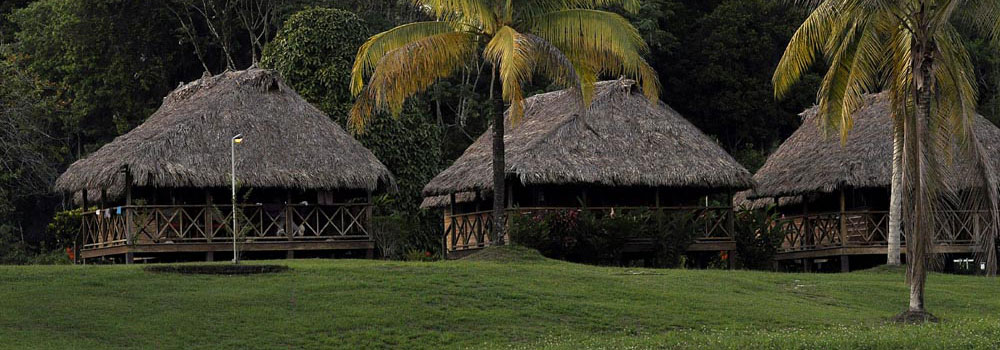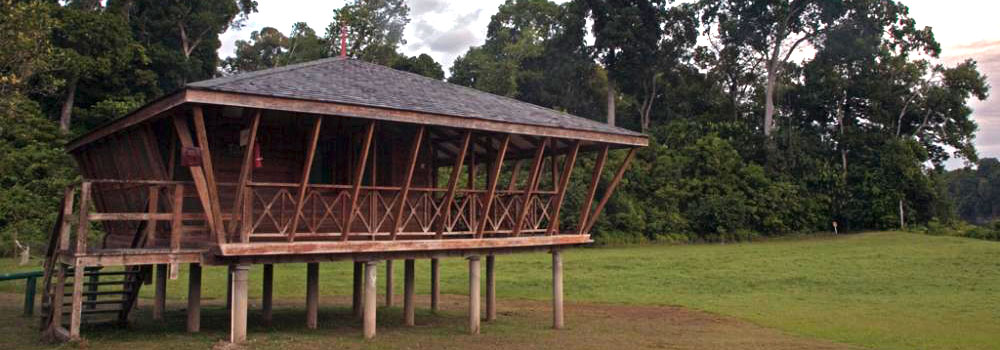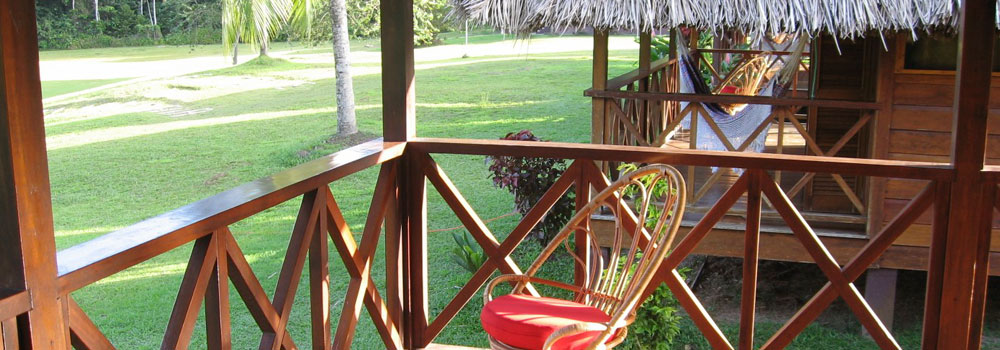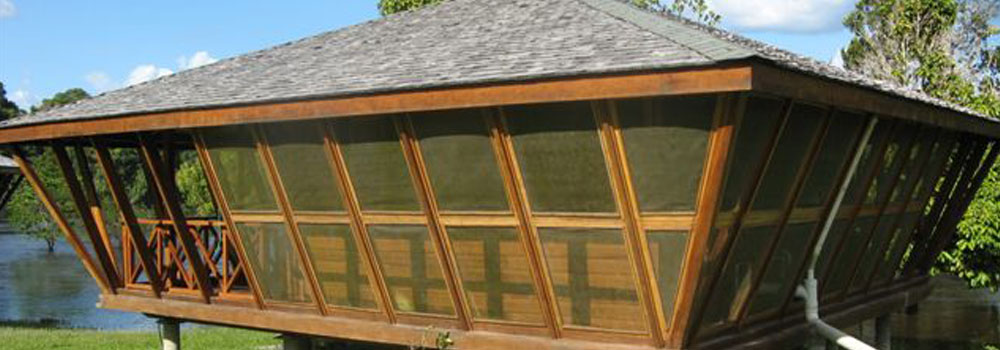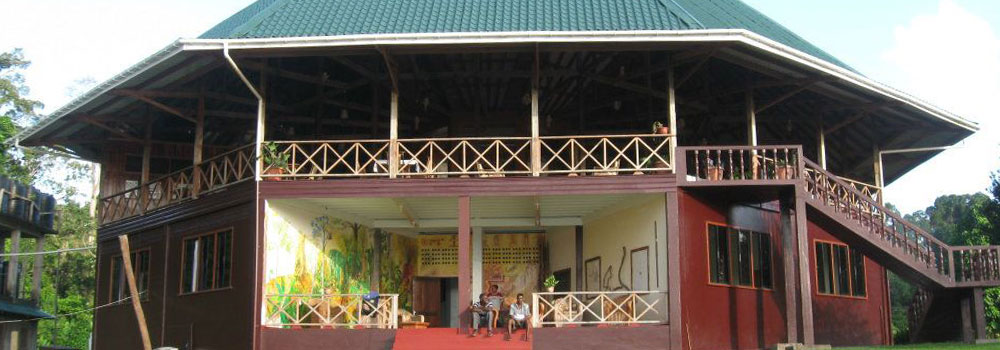Research is clearly identified in Iwokrama’s mission as one of the means of achieving conservation and sustainable utilisation of our forests
Iwokrama promotes the conservation and the sustainable and equitable use of tropical rain forests in a manner that leads to lasting ecological, economic and social benefits to the people of Guyana and to the world in general, by undertaking research, training, and the development and dissemination of technologies.
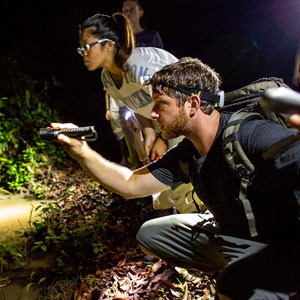 The first phase of Iwokrama’s research focused on the collection of baseline information to help inform management planning for the forest: zoning of the forest, forest management and monitoring. Many biodiversity surveys were conducted in the wider Guianas area. However, there were also several specific projects that encapsulated other issues, including bio-prospecting (entophytic fungi), forest utilisation, wetlands, marketing and social research.
The first phase of Iwokrama’s research focused on the collection of baseline information to help inform management planning for the forest: zoning of the forest, forest management and monitoring. Many biodiversity surveys were conducted in the wider Guianas area. However, there were also several specific projects that encapsulated other issues, including bio-prospecting (entophytic fungi), forest utilisation, wetlands, marketing and social research.
Currently, Iwokrama is engaged in a number of projects that fit well within the IIC’s continuing research agenda goals. The three largest projects comprise the Forest Research Network; the Guiana Shield Initiative; and a programme focused on capacity building to support national initiatives in reducing deforestation and degradation in Guyana. The first project is funded by the European Commission and the Centre for International Forestry Research (CIFOR) EU-ACP Forestry Research Network Project the second by the European Union, the Dutch Government, the UN Development Programme (UNDP) and the International Union for Conservation of Nature (IUCN) Netherlands Committee; and the third by the Gordon and Betty Moore Foundation.
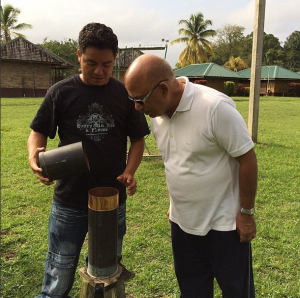 These three projects have begun to take research at Iwokrama in a new direction, building on the baseline information and providing a new focus and a more holistic approach covering all aspects of the ecosystem services that forests provide. The challenge now is to establish an overall research framework that will allow the valuable work carried out in these and future projects to contribute in a coordinated way towards:
These three projects have begun to take research at Iwokrama in a new direction, building on the baseline information and providing a new focus and a more holistic approach covering all aspects of the ecosystem services that forests provide. The challenge now is to establish an overall research framework that will allow the valuable work carried out in these and future projects to contribute in a coordinated way towards:
- The enhancement of the internationally-recognised fundamental science needed to achieve greater understanding of the ecosystem services provided by the Iwokrama forest and to establish how vulnerable they are to stress, particularly from climate change;
- Developing capabilities for quantifying and valuing ecosystem services, and assessing impacts of different possible future economic or climate scenarios and consequently the sustainability of forest management practices;
- Providing long-term monitoring of forest cover, climate, hydrology, and biodiversity, giving evidence for changes in ecosystem services; and
- Supporting training and capacity building in the region to continue to develop and deliver these functions in the long term.
Iwokrama’s new prestigious International Science Committee (ISC), with membership drawn from Guyana, the Caribbean, Europe and the United States, was formed earlier this year to advise the trustees on this new approach to research and to help implement it, together with other key stakeholders.
Research from Newcastle University
 Assisting with Iwokrama’s mission is Newcastle University, a research based institute which is steering research projects on climate and hydrology, biodiversity and cultural heritage. This partnership currently operates, and is in the process of developing, several new and exciting research projects such as the scope and value of the forests’ eco-system services as well as socio-cultural studies focusing on preserving indigenous heritage and sustainable tourism.
Assisting with Iwokrama’s mission is Newcastle University, a research based institute which is steering research projects on climate and hydrology, biodiversity and cultural heritage. This partnership currently operates, and is in the process of developing, several new and exciting research projects such as the scope and value of the forests’ eco-system services as well as socio-cultural studies focusing on preserving indigenous heritage and sustainable tourism.
Articles, Papers, and Reports
Academic work and scholarly papers generated from research conducted at or in collaboration with Iwokrama. (partial – more coming soon)
| YEAR | TITLE | AUTHOR/PUBLICATION/INSTITUTION | URL | DOWNLOAD |
|---|---|---|---|---|
| 2013 | Establishing baseline data on bats for REDD+ verification | Biodiversity Science Burton Lim, Department of Natural History, Royal Ontario Museum | Original article | |
| 2013 | A third microendemic to the Iwokrama Mountains of central Guyana: a new “cryptic” species of Allobates (Anura: Aromobatidae) | Zimmerman and Zimmerman | ||
| 2013 | Iwokrama Research Guidelines | |||
| 2013 | From resilience to viability: a case study of indigenous communities of the North Rupununi, Guyana | Echo Geo | Original Article | |
| 2013 | Sobralia pakaraimense (Orchidaceae), a new species from Guyana | Przemysław Baranow* & Dariusz L. Szlachetko, Finnish Zoological and Botanical Publishing Board | ||
| 2013 | Connecting the fonts in conservation - A compendium of conservation organizations for the insular Caribbean, Belize, Suriname, Guyana | Lia Nicholson, Kasey Jacobs, Marixa Maldonado, and William Gould for the Caribbean Landscape Conservation Cooperative | ||
| 2013 | Bats Before Bedtime - Scientists find a new animal spacies in the old rain forests | Student Science - The Society for Science & The Public | Original article | |
| 2011 | Reducing biodiversity impacts from logging in Guyana | Jake Bicknell, Biodiversity Science | Original article | |
| 2010 | Iwokramam Baseline and Monitoring Report - Monitoring, Resource Management and Training | |||
| 2009 | Forest Law Enforcement and Governance and Forest Practices in Guyana | Jorge Trevin and Robert Nasi | Original article | |
| 2009 | Community Conserved Areas and Multi Level Governance | Fikret Berkes, University of Manitoba | Original article | |
| 2009 | Description of Microcaecilia iwokramae | Zachary R. Lewis; iNaturalist.org | Original article | |
| 2009 | Case study on the impact of climate change on agriculture on an indigenous community in Guyana | United Nations Development Programme | ||
| 2009 | A new lungless caecilian (Amphibia: Gymnophiona) from Guyana | Marvalee H. Wake1, and Maureen A. Donnelly; Proceedings of the Royal Society of Biological Sciences | Original article | |
| 2009 | Initial Assessment of the Climate of Guyana and the Region with a Focus on Iwokrama | C. Isabella Bovolo Geoff Parkin Thomas Wagner School of Civil Engineering & Geosciences Newcastle University Newcastle upon Tyne. NE1 7RU, UK | ||
| 2007 | Green Heart of Guyana - Iwokrama International Centre for Conservation and Development | |||
| 2007 | PROCEDURES FOR ESTABLISHING PERMANENT SAMPLE PLOTS FOR FOREST MONITORING IN THE IWOKRAMA FOREST | Jorge Trevin Silviculture Forester | ||
| 2005 | BIODIVERSITY AND CONSERVATION STUDIES IN GUYANA: 1, 2, & 3 Contributions to the Study of Biological Diversity Volume 2: 1-78 Centre for the Study of Biological Diversity University of Guyana, Faculty of Natural Sciences Turkeyen Campus Georgetown, Guyana 2005 | |||
| 2005 | The Iwokrama Centre and Forest: Introduction to Special Papers | Proceedings of the Academy of Natural Sciences of Philadelphia | Original article | |
| 2005 | Culture Change and Health Among the Makushi | Janette Bulkan (Yale University), Barabara Piperata (Ohio State University), students Kathryn Hicks (Northwestern University), Shawna Ardley, Megan Nolan, and Ashley Farelly (University of Calgary), and 13 Makushi assistants known collectively as the Makushi Research Unit | ||
| 2000 | Report of the Final Project Evaluation Mission | United Nations Development Programme | ||
| 1997 | Presentation: The Iwokrama International Rain Forest Programme in Guyana | Commonwealth consultative group on environment - fourth meeting | ||
| More eyes watching...” Community-based management of the Arapaima (Arapaima gigas) in Central Guyana | Damian Fernandes | |||
| Birds of the Iwokrama Forest | Robert Ridgely & David AGro | Original artcle |
